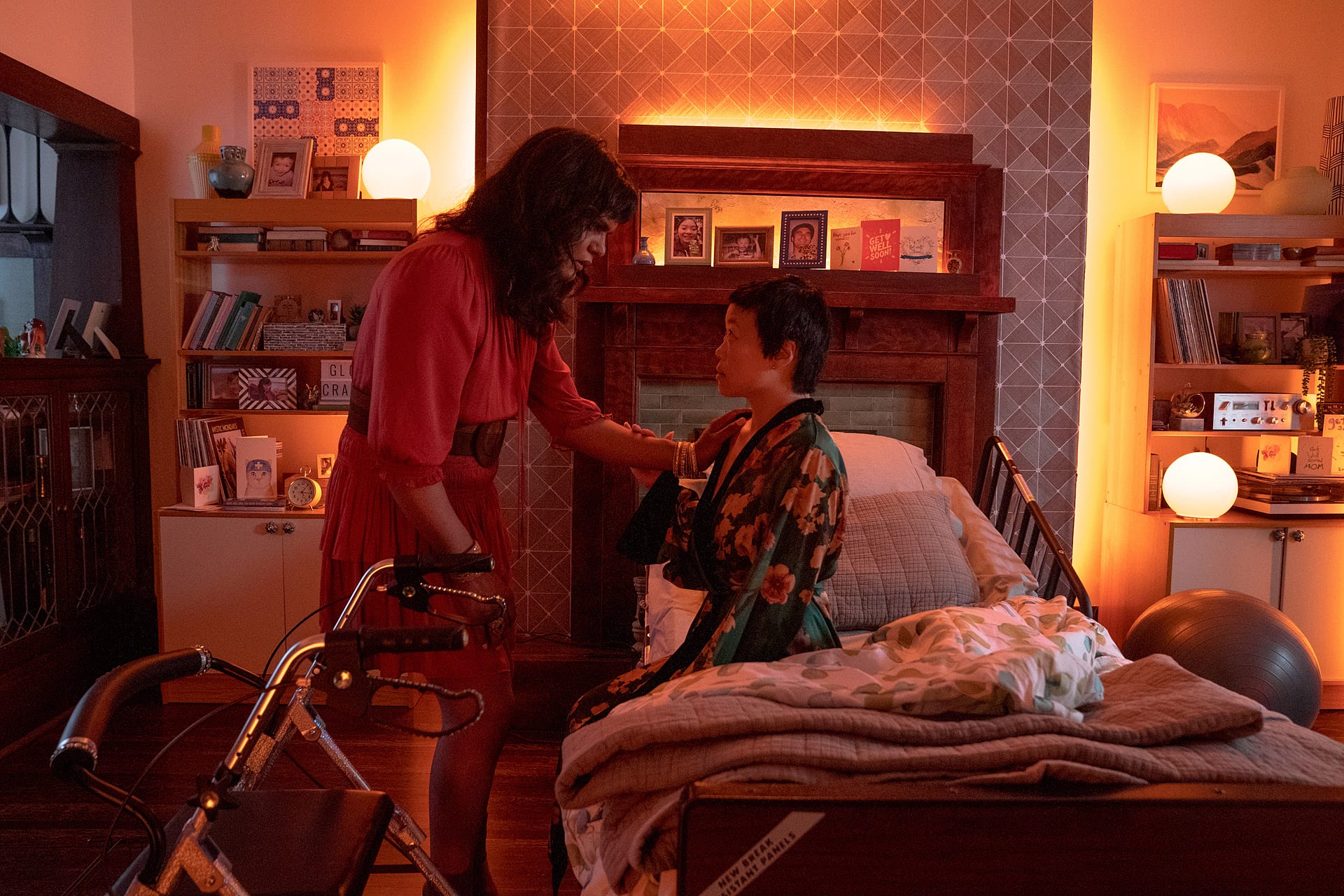Join GLAAD and take action for acceptance.
Trending
- WATCH: G FLIP Talks Channeling New 80’s Rock Persona ‘Butch Springsteen’ For New Album “Dream Ride”
- Meredith Marks Hosts a Special Evening with GLAAD Ahead of the 40th Anniversary
- GLAAD Centers Black Queer Voices at United States Conference on HIV & AIDS
- From “Hacks” to “The Traitors,” LGBTQ Stars Shine at the 2025 Emmy Awards
- Fact Sheet: Debunking “Trans Terrorism” and Other False Claims in High-Profile Crimes
- Don’t miss “The Groomsmen: Second Chances” coming to your TV this Saturday!
- GLAAD Gaming Spotlight: Outerloop Games’ Chandana Ekanayake on Crafting Queer, Brown, and Bold Stories
- Healing Through Music: David Hernandez Releases “feel it all”
Where We Are on TV 2023-2024

In 2023, a study from the USC Norman Lear Center and non-profit Gold House analyzed the top 100 streaming film and television titles from 2022 for Asian representation, and found 347 Asian characters, with 99 of them in major roles. The report analyzed those 99 characters and found that only one of them was queer. Though that study looks at a far different sample from this report, the result is unequivocally the same: LGBTQ Asian representation is extremely limited.
There was a welcome increase of LGBTQ Asian and Pacific Islander (API) characters on primetime scripted broadcasts this year. Six of 64 (nine percent) of LGBTQ characters were API, an increase of three percentage points from last year. These characters include bi+ doctor Mika Yasuda on Grey’s Anatomy, nonbinary dog walker Nico on ABC’s Will Trent, queer characters Khia and Cathy on The CW’s Run the Burbs, gay investigator Dhan on NBC’s Found and Dr. Devi on NBC’s Transplant.
Cable saw a slight percentage decrease of API representation year over year. Of the 77 LGBTQ characters on cable, four (five percent) are API. This is a decrease of one percentage point, and four less characters than the previous year. Two of the four characters appear on the final season of Good Trouble, while the other characters are on series that will hopefully see new seasons: Disney Channel’s Hailey’s on It! and Syfy’s Reginald the Vampire.
After an increase last year, streaming saw a decrease in API representation. Of the 327 LGBTQ characters counted on streaming, 29 (nine percent) are API. Highlights include a nonbinary character on Max’s dramedy Girls on the Bus, protagonist Sabi on the final season of Max’s Sort Of, bisexual character Ah Toy on Max’s Warrior, asexual character Sarah on the final season of Netflix’s Sex Education, and more. Warrior, Sort of and Sex Education will not be returning next year.
In totality, of the 468 LGBTQ characters on broadcast, cable, and streaming, 39 (eight percent) are API. That is a decrease of one percentage point, and a disturbing trend that must be significantly reversed.
Representation of API LGBTQ Characters
- Of the 64 LGBTQ characters counted on the five broadcast networks, nine percent (six) are API.
- Of the 77 LGBTQ characters counted on cable networks, five percent (four) are API.
- Of the 327 LGBTQ characters counted on eight streaming services, nine percent (29) are API.
- Of the 468 LGBTQ characters counted on all platforms, eight percent (39) are API.
No Data Found
Table of Contents
Share this
View Past Years’ Reports
MEASURE THE MOVEMENT
Your gift allows us to track the impact of our work, helping us better understand the state of acceptance and address the gaps with advocacy — like pushing for more trans representation in movies.
More Publications from GLAAD
The GLAAD Studio Responsibility Index (SRI) maps the quantity, quality and diversity of lesbian, gay, bisexual, transgender, and queer (LGBTQ) people in films released by the seven major motion picture studios during the 2016 calendar year. GLAAD researched films released by 20th Century Fox, Lionsgate Entertainment, Paramount Pictures, Sony Pictures, Universal Pictures, Walt Disney Studios and Warner Brothers, as well as films released by four subsidiaries of these major studios. The report is intended to serve as a road map toward increasing fair, accurate and inclusive LGBTQ representation in film.
Each year through extensive polling and research, GLAAD takes an in-depth look at the state…
Nearly Invisible is the first GLAAD report that analyzes the inclusion of lesbian, gay, bisexual, transgender, and queer (LGBTQ) characters in primetime Spanish-language scripted television airing in the United States between July 1, 2015 and June 30, 2016. The report also analyzed the inclusion of characters of African and indigenous descent as well as characters with disabilities.
The Where We Are on TV report analyzes the overall diversity of primetime scripted series…












